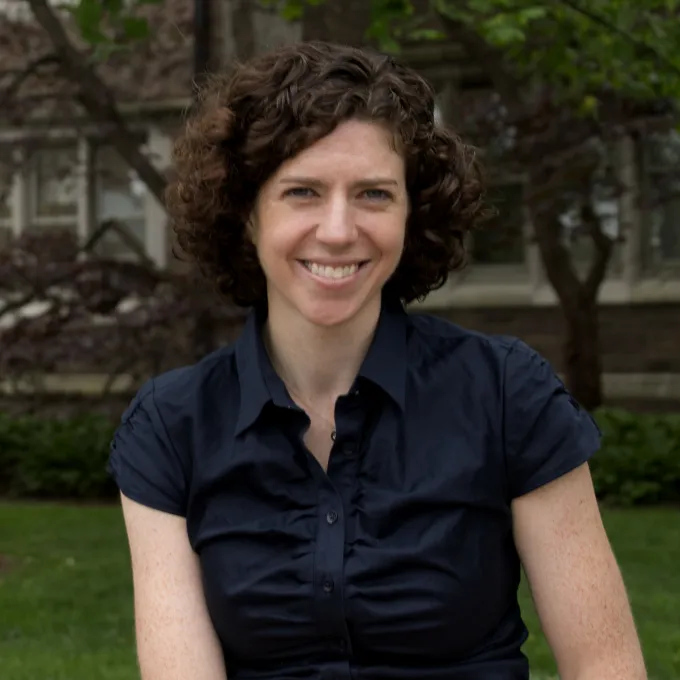On leave AY26
Caroline Kita's research examines German and Austrian culture in the nineteenth and twentieth centuries, focusing on German-Jewish literature, music, theater, and radio drama.
Kita’s scholarship has examined religious and cultural identity in the works of Jewish writers and composers in fin-de-siècle Vienna, critiques of the total work of art, theories of listening and democracy, and sound, space, and time in German-language audiofiction. She is the author of Jewish Difference and the Arts in Vienna: Composing Compassion in Music and Biblical Theater (2019) and co-editor with Jennifer Kapczynski of The Arts of Democratization: Styling Political Sensibilities in Postwar Germany (2022). Her current book project, Border Territories: The Emancipatory Soundscapes of Postwar German Radio, traces the soundscapes of radio drama as spaces of cultural critique and political commentary in German culture in the aftermath of the Second World War. Her articles have appeared in The German Quarterly, The Journal of Austrian Studies, Monatshefte, and Unterrichtspraxis/Teaching German. In 2018, she co-edited a special issue of The German Quarterly on Music and German Culture.
Kita teaches German language courses on all levels, as well as undergraduate and graduate seminars on music, drama, visual art, and literature in German and European cultures. She also teaches the seminar, “Introduction to Comparative Arts,” in the Comparative Literature & Thought.
Kita earned her bachelor’s degree in History from Boston College and her doctorate from Duke University. She has studied at the University of Vienna, the University of Potsdam, and the University of Duisburg-Essen. She received a Fulbright Grant to Austria (2004-05), as well as funding for advanced research from the Austrian Exchange Service (Ernst Mach Grant, 2012; Franz Werfel Fellowship, 2015, 2017), and Washington University’s Center for the Humanities (Faculty Fellowship, 2018). Her current book project is being supported by a fellowship from the National Endowment for the Humanities (2022).

